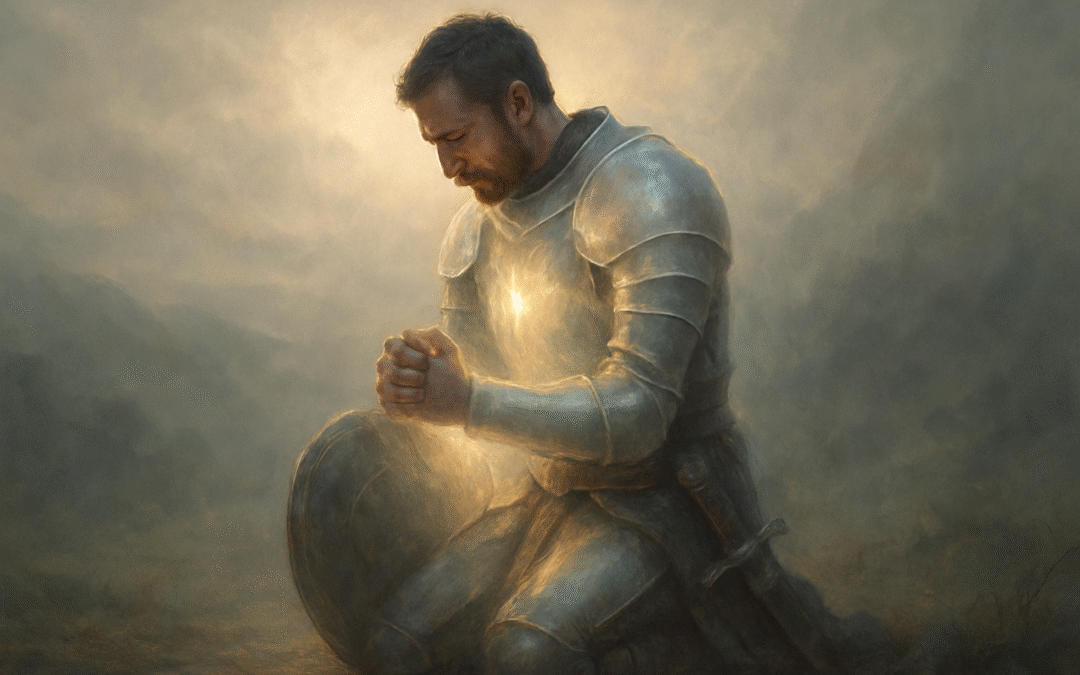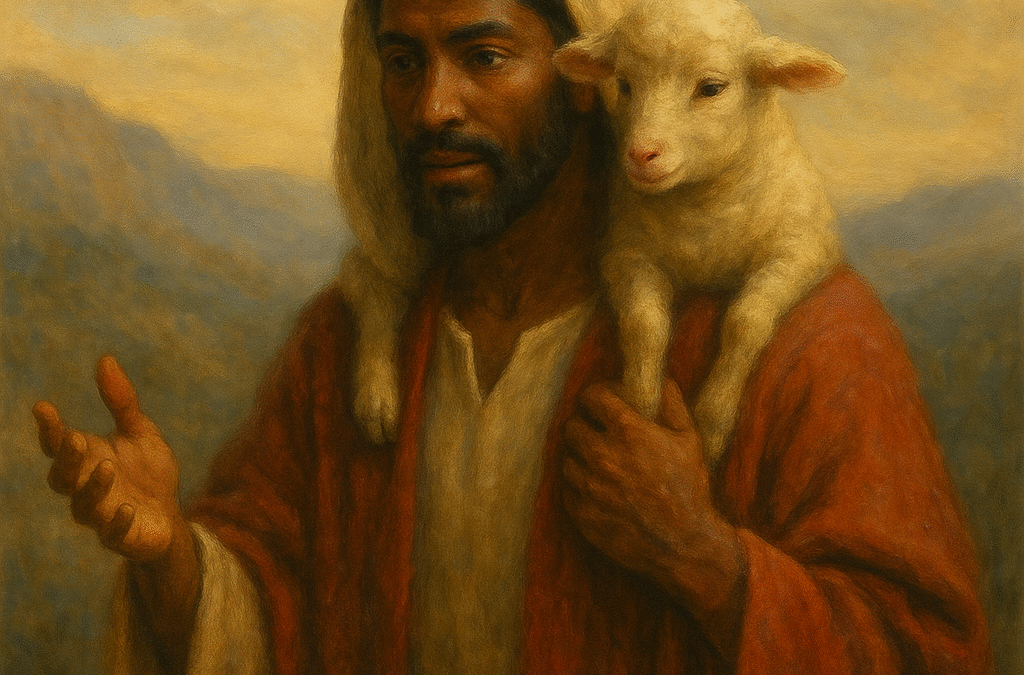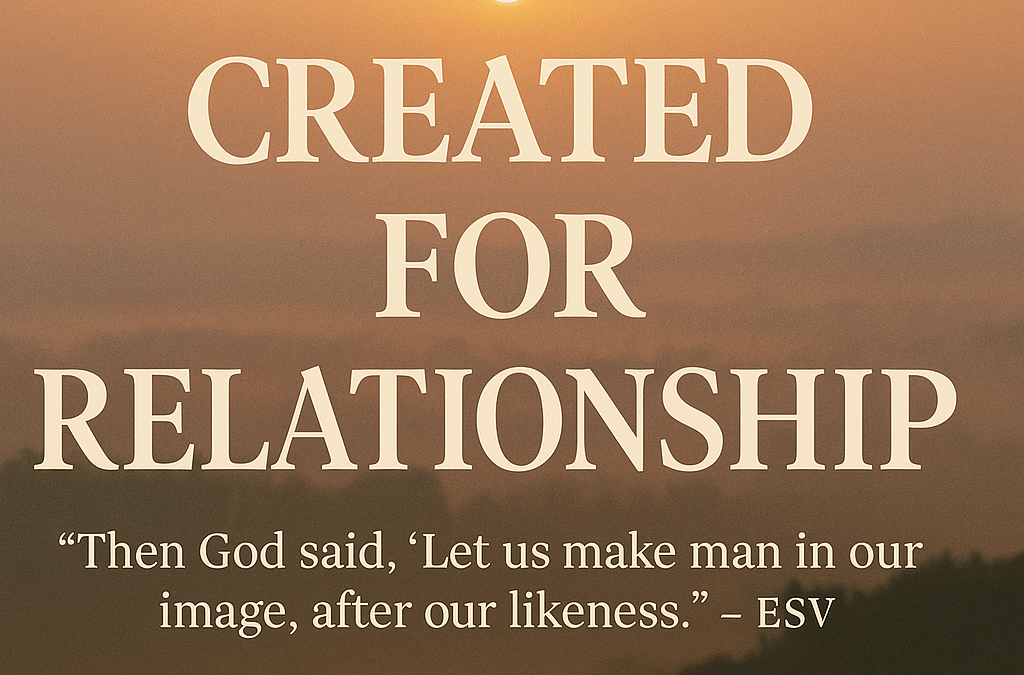
Daily Armor: Living Fully Armored in Union with Christ

When Faith Finds You
When Faith Finds You
🎧 Listen to the Devotional
Click the play button to hear an audio reading of this week’s devotional: “When Faith Finds You.”
When Faith Finds You
Key Verse:
“Without faith it is impossible to please Him, for he who comes to God must believe that He is, and that He is a rewarder of those who diligently seek Him.”
— Hebrews 11:6
We hear the word faith a lot.
In church, in songs, on coffee mugs.
But what does it really mean?
Is it just hoping things get better? Is it believing harder? Trying to stay positive when life feels anything but?
No. It’s deeper than that. It’s more personal.
Faith is not about trying harder.
It’s about hearing God’s voice—and responding.
Faith isn’t a feeling.
It’s not something we manufacture on our own.
It’s something that rises up in us when we finally see Him for who He is.
That may happen in a moment of desperation.
Or in the middle of a song. Or a memory. Or someone else’s story.
It could be a grandmother’s prayer whispered over a child’s crib.
A friend’s late-night testimony of how God pulled them out of the dark.
A sermon that unexpectedly stirs your heart.
A moment when Scripture feels like it was written just for you.
Or even a stranger sharing something they didn’t know you needed to hear.
That’s how faith often comes—by hearing.
And the One speaking is God Himself.
It’s always been that way. From the very beginning.
Adam and Eve knew God. They walked with Him, talked with Him. They passed on what they knew.
Their children—and their children’s children—carried that spark of knowing.
- Abel brought a faithful offering.
- Enoch walked so closely with God that he never died.
- Noah trusted God when the no one else would.
- And from Noah came Abraham—who believed God’s promise, even when everything around him said it was impossible.
These weren’t perfect people.
But they heard God.
And they trusted Him.
Faith was born.
That same thread of faith still runs through history—through people like you and me. Through those who have walked with Him. Through those who have hurt and hoped and prayed and wondered.
We don’t start from scratch.
We’re part of a story that began long before us.
And now, you’re here.
Reading these words. Maybe remembering something. Maybe feeling something rise inside you.
Could it be… that He’s speaking to you, too?
You don’t have to clean yourself up first.
You don’t have to fix your life or pretend you’re okay.
You don’t even have to understand everything.
You just have to listen.
Because He’s already near.
He’s already reaching.
You don’t have to go searching for Him across some spiritual landscape—
He’s the one who comes after you.
Jesus said He would leave the ninety-nine to go find the one.
He’s still doing that.
And maybe today, you’re the one.
“Come to Me, all who are weary and burdened, and I will give you rest.”
— Matthew 11:28
“Draw near to God, and He will draw near to you.”
— James 4:8
Faith begins when we hear Him—and we say yes.
Maybe today… you just heard Him.
A Prayer for Today
Lord, I don’t want to keep running or hiding.
I believe You are who You say You are.
I believe You’re calling me to something deeper.
Help me hear Your voice.
Help me trust You.
Let my life become a part of the story You’re telling—one that draws others to You, too.
In Jesus’ name, Amen.

Created for Relationship
Created for Relationship
🎧 Listen to the Devotional
Click the play button to hear an audio reading of this week’s devotional: “Created for Relationship.”
Created for Relationship
“Then God said, ‘Let us make man in our image, after our likeness.’” – Genesis 1:26 (ESV)
From the very first page of Scripture, we see it—God’s desire is not for systems or servants, but sons and daughters. Before He spoke galaxies into motion, He envisioned a people who would know Him and be known by Him. You and I were not created to merely function—we were created to belong.
God’s image in us isn’t about power or perfection—it’s about relationship. We were made to reflect His love and live in communion with Him and with one another.
All throughout the Bible, this longing pulses like a heartbeat. In Eden, He walked with Adam and Eve in the cool of the day. At Sinai, He bound Himself to Israel with a covenant—calling them His bride. And in the Gospels, Jesus weeps, heals, forgives, and ultimately lays down His life to restore the relationship sin had shattered.
This is why broken relationships grieve God so deeply.
“I hate divorce,” says the Lord… (Malachi 2:16)
Not because He hates those who’ve experienced it, but because He knows what it costs. Divorce is not just a legal term—it’s the language of loss. It mirrors what happened when humanity turned away, trading intimacy for independence, covenant for control.
But God’s response is not revenge—it’s redemption.
Through Jesus, the divine Bridegroom, God didn’t just court us—He came to rescue us. And even in the shadow of the cross, Jesus prayed:
“Father, I desire that they also, whom You have given Me, may be with Me where I am, to see My glory…”
— John 17:24 (ESV)
Can you hear the longing in His words? This is not the voice of obligation—it’s the voice of love. He doesn’t just want to save us. He wants us with Him.
So where does that leave us?
It calls us to live differently. To treasure the relationships in our lives. To forgive as we’ve been forgiven. To love with covenant-keeping love, even when it’s costly.
And most of all, to return—again and again—to the God who still longs to walk with us.
Reflection
- Are you walking with Him?
- Are there relationships in your life in need of healing, repentance, or reconnection?
- God’s heart is not just to be near you… but with you—faithfully, intimately, forever.
Prayer
Lord,
Thank You for creating me in love and for love.
Forgive me for the times I’ve turned away from You, or from others You’ve placed in my life.
Heal what’s been broken. Strengthen what remains.
Teach me to reflect Your heart in my relationships—with steadfastness, grace, and joy.
In Jesus’ name… Amen.

Free Range Faith: Roaming Beyond the Fences
Free Range Faith: Roaming Beyond the Fences
Free Range Faith: Letting Christianity Roam Unfettered
For many Christians, faith has long been defined within the walls of a church — Sunday services, familiar hymns, and established creeds shaping their spiritual lives. But there is a growing number of believers who are gently stepping beyond those walls. Not out of rebellion, but out of a desire for something more authentic. They are part of a movement that practices what some have come to call Free Range Faith.
Free Range Faith untethers Christian belief from formal institutions and rigid denominational boundaries. It doesn’t dismiss the church — it reimagines it. This kind of faith doesn’t always come with a dedicated building, a pulpit, or a scheduled Sunday service. Instead, it grazes across biblical teaching, draws insight from varied traditions, and finds God’s fingerprints in philosophy, nature, music, laughter, tears, and shared meals with fellow seekers.
Those living out Free Range Faith often curate their own rhythms of devotion. One may begin the morning in prayerful solitude, spend the afternoon serving others in their community, and close the day immersed in the words of Jesus. Their worship may happen around campfires, over kitchen tables, or during long walks in the woods. The pasture is wide open, and the Shepherd is still near.
This kind of spiritual freedom comes with both beauty and challenge. Without a traditional congregation or clergy to lean on, the responsibility to grow spiritually rests heavily on the individual. Questions can linger longer. Community can be harder to find. Yet for many, the joy of discovering a faith that breathes and moves with real life is worth the effort.
And it’s important to say — Free Range Christians are not spiritual loners. They are still part of the Church — the true Church — the one that worships in spirit and in truth. They long for meaningful relationships, but those relationships are centered around the person of Jesus, not an institution. Their bonds are not built on shared bulletins or matching pews, but on shared burdens, honest prayer, and deep love for God.
As institutional attendance declines and people question old paradigms, Free Range Faith offers another way. It’s a path of listening to the Spirit within, marveling at God’s handiwork in creation, and walking out Jesus’ love in real, tangible ways. It’s flexible, deeply personal, and full of possibility.
For those who have felt stifled by manmade systems, yet still crave a life shaped by Christ, Free Range Faith gives permission to follow Him through open gates and unfamiliar paths. It’s not about wandering aimlessly — it’s about being led, daily, by the One who knows every pasture by name.

Where the Bus Parked and Heaven Touched Earth
Where the Bus Parked and Heaven Touched Earth
Memory
Occasionally in life we cross a line into something more memorable. A moment, or a day, that—for whatever reason—sticks to our minds forever. Some days come and go without much notice or specific memory. But once in a while, there’s a day that molds our outlook, adjusts our thinking, and even highlights our dreams.
This week has been one of those weeks. A marker in our personal history. We’ll forever look back and say, “Remember that week?”
December of 2015 has been unseasonably warm for northern Michigan. The few flurries that blew in melted away just as quickly. Most days lingered far above the freezing point. This rare warm window gave us the chance to bring the bus north when we should have been a thousand miles south, enjoying sun, sand, and sea.
We parked the bus with some dear friends and took full advantage of their hospitality. That decision was more than convenience—it was designed by God. He promises to direct our steps, and He hasn’t failed.
Our time with this precious couple and their children will leave indelible marks on our hearts. Together we shared the love of Jesus, scripture, hugs, and quiet strength. This week, we witnessed what the church was always meant to be. We saw the power of the Holy Spirit. We laughed. We cried. We prayed. Last night we broke bread, shared a cup, and remembered our Lord together. And today, we said our sad goodbyes.
Because of this family who opened their lives to us, our tomorrows will be a little brighter. Our life now has a bit more purpose. And our memories… well, they shine a little more brightly.
People often ask if we enjoy living in the bus. Yes—we love it. But more than the bus, what matters is this: occasionally, we get to be someplace special, with someone special, in a way that only God could have arranged. Hearts are touched. Lives are changed. And memories are made.

